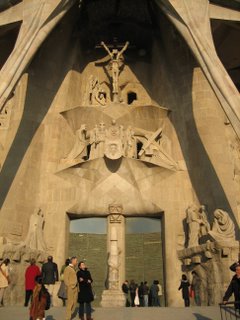Two horizons of hope: justice vs economic growth I
This is the first in a three-part series offering theological reflections on some issues raised by the Occupy movement. The second can be found here and the third here.
Martin Luther King’s famous “I have a dream” speech begins, oddly enough, with a banking metaphor. From the steps of the Lincoln Memorial that day in 1963 King thundered:
In a sense we’ve come to our nation’s capital to cash a check. When the architects of our republic wrote the magnificent words of the Constitution and the Declaration of Independence, they were signing a promissory note to which every American was to fall heir. This note was a promise that all men, yes, black men as well as white men, would be guaranteed the “unalienable Rights” of “Life, Liberty and the pursuit of Happiness.” It is obvious today that America has defaulted on this promissory note, insofar as her citizens of color are concerned. Instead of honoring this sacred obligation, America has given the Negro people a bad check, a check which has come back marked “insufficient funds.”Perhaps the Occupy Wall Street protesters could have used that.
But we refuse to believe that the bank of justice is bankrupt. We refuse to believe that there are insufficient funds in the great vaults of opportunity of this nation. And so, we’ve come to cash this check, a check that will give us upon demand the riches of freedom and the security of justice.
In any case, I’m struck by the way King’s rhetoric has dated. It still moves me deeply, but I just cannot imagine a public figure today getting away with such bold and unqualified demands. We have come to expect a measure of realism, a curbed enthusiasm, a toned-down rhetoric from our political leaders. To our contemporary ears King’s words sound somewhat naïve, and his idealism might even evoke in us a hint of wariness.
Am I right? Why do you think that is? Can it be put down merely to changes in rhetorical style? What should we make of King’s demands for justice?
King returns in his speech to the theme of justice in the famous line: “we are not satisfied, and we will not be satisfied until ‘justice rolls down like waters, and righteousness like a mighty stream’.”
The quotation comes from the biblical prophet Amos. And, as Oliver O’Donovan explains, the prophet’s poetic metaphors express the longing for there to begin “a flood of judicial activity” in a society in which judicial activity has dried up: “Courts are to be held every day ‘in the gate’, appellants are to be heard quickly and without the need for bribes, verdicts are to be clear-sighted and decisive, and enforced” (The Ways of Judgment, 6).
This petition for renewed judicial activity is not unique to Amos. In fact, it’s a desire that is expressed repeatedly throughout the Old Testament. The moral imagination of Israel is marked by this posture of deep yearning for proper judicial oversight. The poor, the vulnerable and the exploited should have their cases heard; and those who have wronged them should be publicly exposed and held responsible for their misdeeds. Similarly, in the Hebrew scriptures the qualities most venerated in kings and rulers are not military prowess, rhetorical skill or political cunning but the readiness to execute justice and the determination to see that peace and righteousness are established and maintained. The Old Testament people of God were clearly convinced that nothing could be a greater blessing to a nation than to have a just and wise ruler, and nothing worse than to be subject to a corrupt or foolish ruler who has no concern for justice.
This guiding conviction is picked up again in the New Testament. In continuity with the message of the ancient prophets, both John the Baptist and Jesus come preaching against the rulers of Israel whose failings were precisely failures to exercise their authority with the appropriate justice and mercy; rather than teaching and applying the law of God without hypocrisy and without favour, they were exploiting and neglecting the people under their care and serving their own interests.
By contrast, Jesus is studiously portrayed in the gospels as one who demonstrates all the qualities of a just king or ruler and who will at last fulfill the oracle of Isaiah 9:
He will reign on David’s throneThroughout the Bible, then, it is axiomatic that the primary purpose of government is to establish and to uphold justice; and that without institutions of justice a society simply cannot enjoy peace and lasting happiness. Whether they are politically naïve or not, King’s focus on justice places him squarely in the biblical tradition.
and over his kingdom,
establishing and upholding it
with justice and righteousness
from that time on and forever.
Dr Matheson Russell is lecturer in Philosophy at the University of Auckland.
















